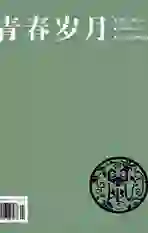Cultural Differences of Main Festivals in China and Western Countries
2017-04-15LiJiaying
Li+Jiaying
Abstract:There are many Festivals in China and western counties. Some of them have the similar culture background and celebration activities. While others have completely different origin and custom. The passage discusses the major festivals in China and western counties which are the Spring Festival and the Christmas from the culture viewpoint.
Key words:Cultural Different; the Spring Festival; the Christmas
1. Introduction
Festivals are very significant both in China and western countries. People attach importance to various festivals because most festivals have nice and hopeful meanings and people can express their best wishes in the festivals. In China, the grandest and busiest festival is the Spring Festival. While in many western countries, people pay more attention to the Christmas. The Spring Festival and the Christmas both are festive and happy holiday. They have similar celebration atmosphere and hopeful wishes. But what are the cultural differences behind these two festivals? The following paragraphs will discuss this issue in detail.
2. The Main Festivals in China and Western Countries
There are many festivals both in China and western countries, such as the New Year, the Spring Festival, the Mid-Autumn Festival and the National Day in China and the New Year, the Christmas, the Halloween, the Easter and the Thanksgiving Day in western counties. Among these holidays, Chinese value the Spring Festival most and westerners think the Christmas is of importance.
2.1 The Spring Festival in China
The Spring Festival is the biggest traditional festival of China which is on the first day of the lunar calendar. It has a long history about 4000 years and is originated in Shang Dynasty. The Spring Festival means the new year is coming, the spring is coming and a new round of hard farming is around the corner. People begin to look forward to colorful flowers, hopeful field and vibrant lives from this day. When the Spring Festival is approaching, life is full of joy and laugh. Everybody welcomes it with singing and dancing. During this festival, people give best wishes to each other which are about health, work, study, harvest and so on. The family reunion dinner is the most important dinner in the whole year. This dinner occurs on the Eve of the Spring Festival which includes rich and colorful dishes, such as meat, fish, vegetables, sea food, dumplings and so on.
2.2 The Christmas in western counties
The Christmas entirely comes from religion. It is on December 25th in each year which is birthday of Jesus. Westerners by all means prepare Christmas trees in this holiday which are decorated beautifully. Whats more, a rich family dinner is a must. Family members may give Christmas cards to each other. The best wishes and some family news or goals are written on the cards. Children are very fond of this holiday because they believe in the story of Father Christmas. They put Christmas stockings near their pillows and expect to receive gifts from Father Christmas. Turkey is the essential dish in the Christmas dinner and families reunite on this day. Since the Christmas is a religious holiday, many religious activities also take place during this period, such as singing Christmas carol, praying in the church and so on. This is a joyful and peaceful holiday.
3. Conclusion
From the passage above, we can find that festivals in different countries have different holiday culture and various celebration forms. At the same time, these festivals also have similar atmosphere. Chinese Spring Festival and western Christmas are two different festivals in origin and custom. However, both of them reflect peoples wonderful dreams about life and family. They are the traditional holidays in each country but they are also the common holiday for everyone no matter where they come from.
【Reference】
[1] Wu Fenglin, Difference Custom Between Western Countries and Eastern Countries[J]. Suihua Teacher College, 2009,3.
[2] Li Tong, Various Holidays Around the World[M], Shanghai: Shanghai Foreign Language Press, 2001.
[3] DAVID M. Festivals and Celebrations[M]. Beijing: Foreign Language Teaching and research Press, 2000.
[4] EBEN W L. One World, Many Cultures[M]. A Simon & Schuster Company, 1995.
[5] GINA T. Culture Smart[M]. Beijing: Foreign Language Teaching and research Press, 2009.
[6] HARVEY M T. Special Days, Special Way, Western Holidays Customs Culture[M]. Beijing: Peking University Press, 1995.
[7] HENDRIK W V L. The Story of the Bible[M]. Beijing: China City Press, 2009.
[8] STEPHEN J D D. My life in China[M]. Shanghai: Shanghai Foreign Language Education Press, 2000.
[9] Chen Jiujin, Lu Lianrong, Chinese Festivals and Their Origins[M]. Shanghai Scientific and Technological Education Press, 1989.
[10] Gan Shian, Wei Shuili: Analysis on Representations and Connotations of Chinese and American Festival Culture and Enlightenments[J], Journal of Northwest University(Philosophy and Social Sciences Edition), 2007(1):101-105.
[11] Jin Shengxia: Discussion on Impact of Western Festivals on Chinese Traditional Festivals[J],Journal of Yangtze University(Social Sciences Edition), 2005(3):32-34.
[12] Li Zhenyi: Chinese Folk Customs[M]. China Translation and Publishing Corporation, 2007.
[13] Liu Gang, Li Hui:Stories of Festivals[M]. China Tourism Publishing House, 2004.
[14] Tian Yao. American Culture[M]. Tianjin University Press, 2009.
[15] Zhang Benliang. Comparison on Chinese and American Festival Culture[J]. Journal of Luoyang University, 1997(5):66-69.
【作者簡介】
李嘉莹(1999—),女,蒙古族,河北沧州人,河北省沧州市第一中学高中生,主要研究方向:外国语。
